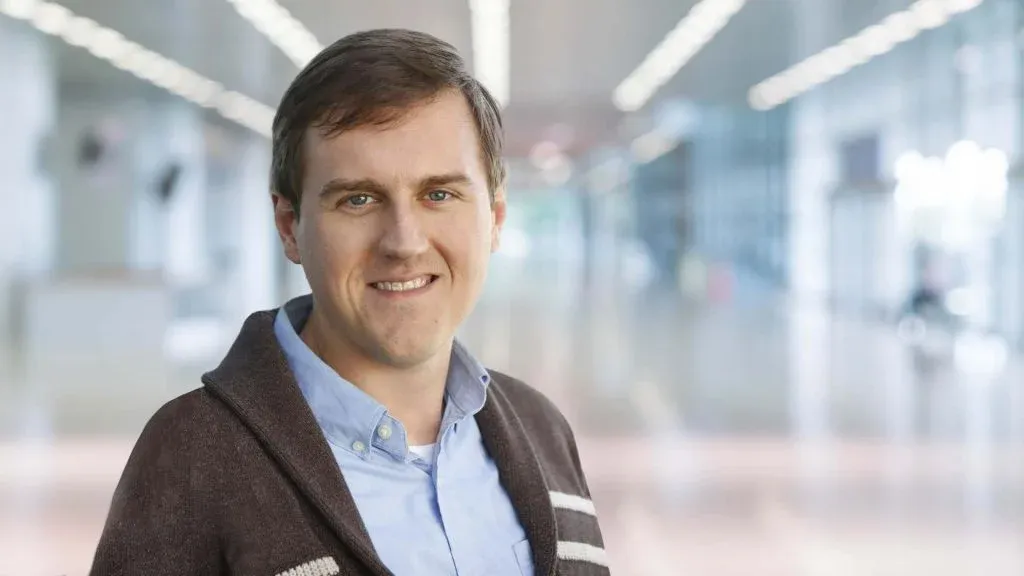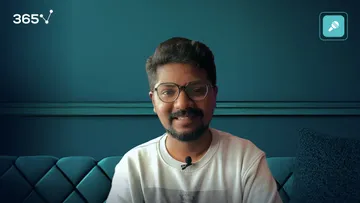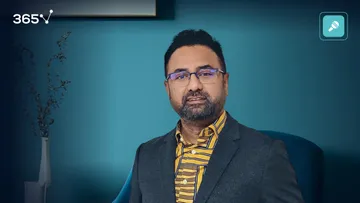Kyle Polich, Data Skeptic Podcast Host

Hi Kyle,could you briefly introduce yourself to our readers?
My name is Kyle Polich. I produce Data Skeptic, a weekly podcast of interviews, discussions, and occasional radio stories about topics related to data science and critical thinking. We cover one theme in depth for several months. Most recently - artificial intelligence, fake news, and natural language processing. When I’m not working on the show, I run a small boutique consulting company that helps organizations deploy machine learning in the cloud.
Data science is certainly keeping you busy nowadays. But let’s take you on a short trip down Memory Lane. When did you hear about it for the first time and how did you end up working in this field?
It’s hard to remember exactly when I first heard the term. It was probably at a conference or on a podcast. I suppose I didn’t form a memory about it because the meaning and need for this terminology felt rather obvious to me, as it well described the role I’d been playing in the industry under a variety of titles. In grad school, I studied artificial intelligence which helped me slip into the role almost accidentally while working at a company that had a dire need for someone that understood both the software and the data.
As you mention, data science covers a wide range of tasks. What’s your favorite aspect of your job?
I love to build things. We have had really good luck in connecting with companies that have novel needs requiring a lot of planning, invention, and sometimes research.
Speaking of work, which are some common challenges most beginner data scientists must face and overcome in their day to day professional life?
Well, one thing that comes to my mind is organizational engineering - most beginning data scientists will start in organizations that have under-utilized their data. In the worst cases, they’ll have deplorable data hygiene. So, important skills to develop are knowing what battles can be won organizationally, as well as demonstrating technological feasibility.
Another challenge they must face is continuous learning.
I couldn’t agree with you more. Working in this field is a non-stop learning process. So, how do you see data science evolve, over the next 5-10 years? There are many aspiring data scientists who would appreciate hearing your opinion on this.
I actually think the term “data science” will decline in popularity as people begin to express more specific roles. There was a time when a person might describe themselves as a “computer programmer” but saying that today sounds peculiar. I’m expecting something more specific like “AWS certified full stack node.js dev with MongoDB experience”. Data science is a broad umbrella term. While a breadth of knowledge is important, I think having specializations will become the trend. Examples include machine learning, streaming systems, time series analysis, NLP, deep learning engineer, data pipeline engineer, etc.
I think having specializations will become the trend.
Thanks for sharing that insight with our readers. Talking about trends, podcasts have been steadily rising in popularity. So, tell us more about your podcast journey. Why did you decide to start your own Data Skeptic podcast?
Well, I collected old time radio programs recorded of WBBM AM in Chicago when I was a kid on Chuck Saden’s “Those Were the Days” program. I’ve always liked audio as a medium, enjoying lectures, audio books, and of course, podcasts. When thinking about starting my own platform, it felt natural for me to bring together two areas I’m passionate about - data science and scientific skepticism. I saw a need to help bring a broader understanding of how data is changing our world to a wider audience who might not have the time, expertise, or interest in keeping up with the academic literature. Starting the show seemed like a good excuse to keep myself reading and help highlight ideas I think deserve more attention.
The discussions with your podcast guests always manage to raise thought-provoking questions about the world of data science. What's the biggest challenge specific to putting together a new episode of Data Skeptic?
All the things we didn’t think of until after it got released. There’s always a great question that occurs to me only during the final edit. There’s always more to say as well, but I sometimes struggle to keep the show from getting too long or overindulgent.
In our experience as Data Skeptic listeners, you always manage to strike a great balance between being informative and leaving us curious for more. And your podcast is famous for inspiring critical thinking. How do you choose the topics for your episodes?
About 2 years ago, I started picking two themes per year for the show. NLP is our current topic, and we have something brand new and exciting beginning in July. Adopting this format has been really helpful in framing how I pick topics. With several months to dwell on a subject, I never find myself stretching for content. Each topic gets approximately 25 episodes, and I spent a lot of time being as deliberate and thoughtful as I can be about how to make the best use of those slots.
Sounds like a winning strategy. In terms of subjects, what’s the strangest and most surprising way you’ve found a story for an episode?
I’ll have to go a few years into the archives to answer this one. I like to mix things up on the show every once in a while, doing something off the wall. For example, episode 64 is a very light-hearted attempt to calculate the probability (however small) that bigfoot might just possibly be real. With the same spirit in mind, I decided to reach out to a vendor I met as a teenager while attending GenCON (a tabletop roleplaying game convention). These games typically require a variety of sided dice (4, 6, 8, 12, and 20). There was a rather entertaining guy named Louis Zocchi whose company, Game Science, sold dice which were manufactured to remove a statistical bias found in the majority of the market. I love the product, but also find it ridiculous in a somewhat wonderful way!
I like to mix things up on the show every once in a while, doing something off the wall.
Anyway, during the episode, he mentioned being interviewed by a “young woman” in print. In a humorous coincidence, one of my next guests, Karl Mamer of the Conspiracy Skeptic Podcast confessed to being that “young woman”. That’s about as strange as it’s gotten so far, but I’m eager to find out what weird things may await us in the future.
That’s quite a funny coincidence! I guess data science has its magical ways… In conclusion, what can we expect from the upcoming podcast episodes (or is that too big of a spoiler…)?
Well, we’re approaching the final lap of our series on natural language processing. I haven’t yet gotten a chance to cover BERT on the show. We’ve been using it in my company and its results are nothing short of a miracle. I’m excited to tell the listeners all about it soon.





